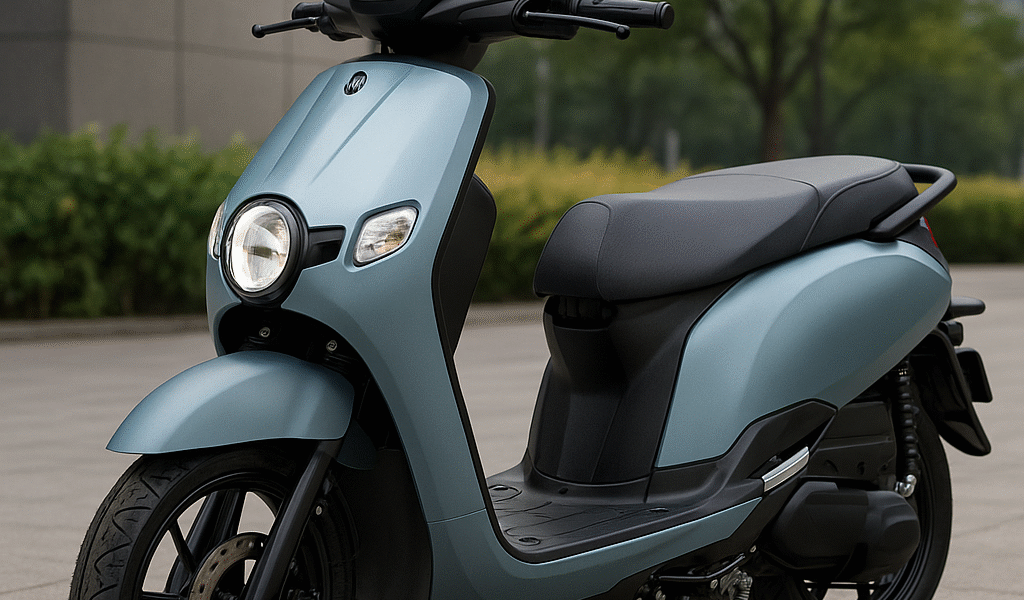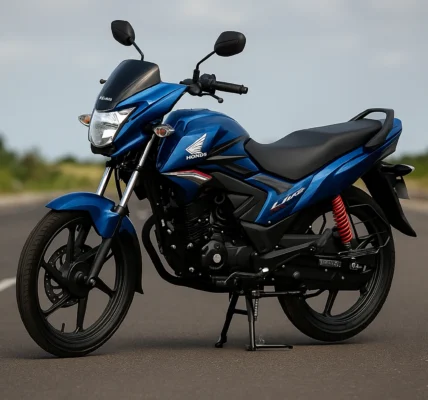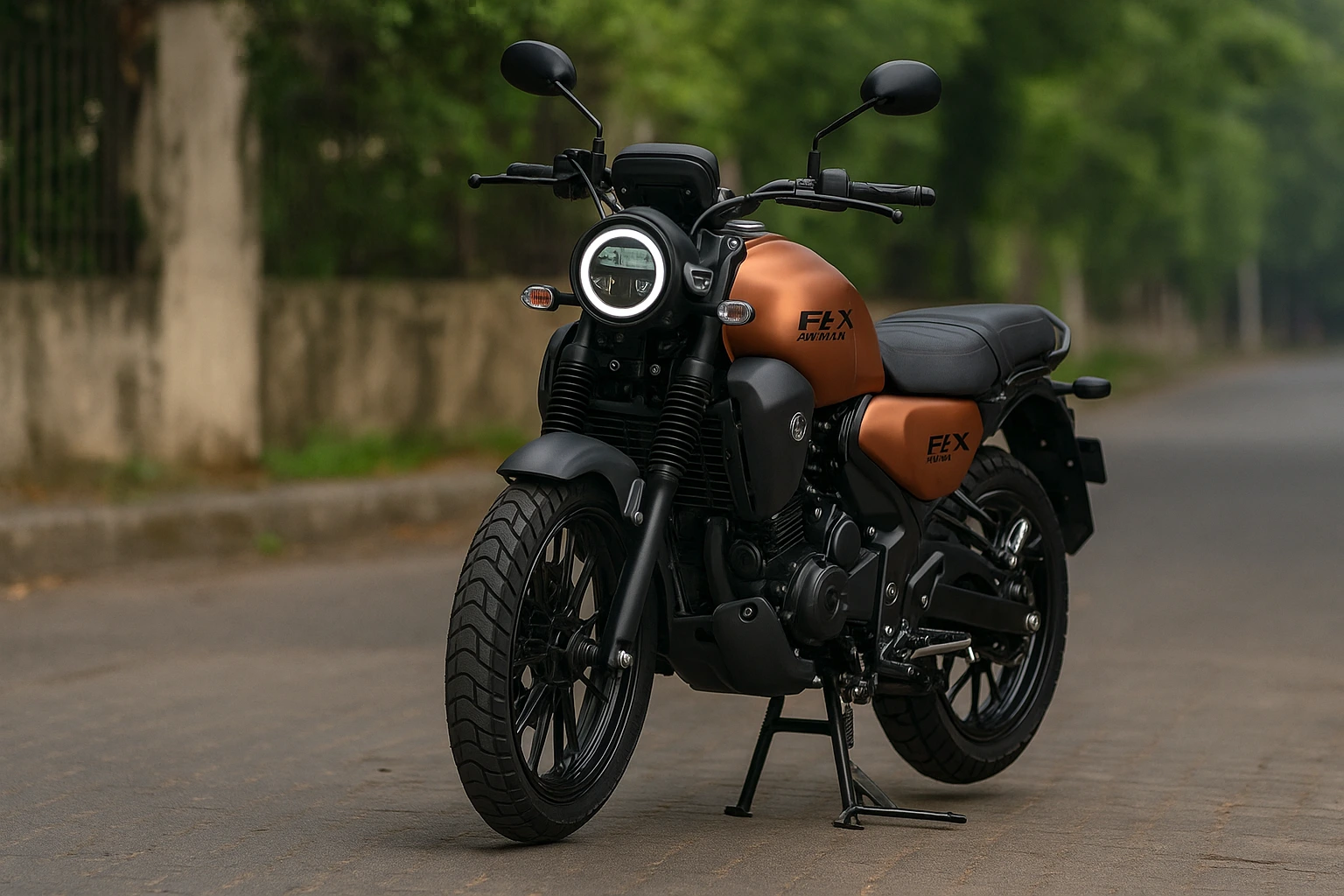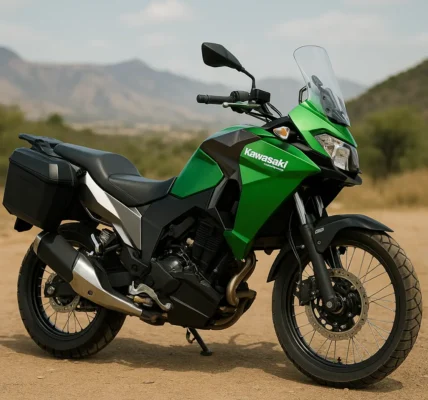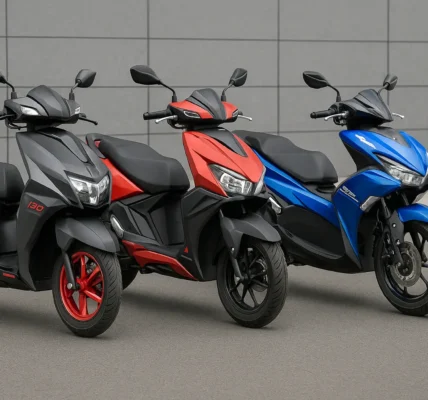Yamaha EV Scooter at ₹45,000 – India’s Affordable Step Into Electric Mobility
If you ask an average Indian commuter what they truly want from a two-wheeler, the answer is usually simple – it should be affordable, easy to maintain, and reliable for daily rides. That’s why when whispers started about a Yamaha EV scooter priced at just ₹45,000, it instantly caught everyone’s attention. Imagine owning a brand-new electric scooter at the cost of a mid-range smartphone. Sounds unbelievable, right? But Yamaha is known for surprising the market, and this move could completely reshape the budget EV segment.
Why This Launch Feels Different
For years, Yamaha has been associated with dependable bikes like the FZ, R15, and scooters like the Fascino. While EV startups have been fighting for space with flashy designs and premium prices, Yamaha has quietly studied the Indian market. They know one thing very well – India is a value-driven country.
By stepping in with an EV scooter under ₹50,000, Yamaha is aiming straight at the heart of middle-class households, college students, and delivery workers who measure every rupee spent on fuel. It’s not just about being electric; it’s about being practical and pocket-friendly.
What to Expect in the Yamaha EV Scooter
At this price, nobody expects supercar-like speed or ultra-long range. The scooter will most likely keep things simple yet smart. Here’s what riders can realistically look forward to:
-
Lightweight City-Friendly Build – Easy to handle in traffic and even easier to park in tight spaces.
-
Decent Top Speed (50–60 km/h) – Enough for city commutes without overstraining the motor.
-
Range of 70–80 km per Charge – Perfect for office commutes, college runs, or quick market trips.
-
Detachable Battery Option – Riders can carry it inside for charging, making it hassle-free for apartment users.
-
Charging Time of Around 4–5 Hours – Plug it in overnight and it’s ready the next morning.
-
Digital Speedometer – No-nonsense display showing speed, range, and battery life.
-
Minimal Maintenance Costs – EVs don’t need frequent servicing like petrol engines, saving both money and effort.
Petrol vs EV – The Savings Game
Let’s put things into perspective.
-
A petrol scooter running 30 km a day easily gulps ₹100 worth of fuel. That’s around ₹3,000 a month.
-
With an EV scooter, the same distance costs barely ₹300–400 a month in electricity.
Over one year, that’s nearly ₹25,000 saved – which is more than half the scooter’s price. For delivery partners, students, and office-goers, these savings are hard to ignore.
Yamaha’s Big Advantage
While smaller EV brands are fighting to establish trust, Yamaha already has decades of credibility in India. Their dealership and service network covers even smaller towns – a massive plus for customers worried about after-sales support.
Add to this the fact that the Indian government is actively offering subsidies through FAME-II and state-level schemes, and you begin to see why Yamaha’s entry is such a big deal. The scooter could easily become a mass-market hit, just like the Activa was in its early years.
Who Will Love This Scooter the Most?
-
College Students who want a stylish ride without burning a hole in their pocket.
-
Daily Office Commuters who need a reliable, budget-friendly alternative to petrol.
-
Delivery Riders working for food and courier apps who want to maximize their monthly earnings.
-
First-Time EV Buyers who want to test the waters without investing in a costly premium scooter.
Any Limitations?
Of course, with a ₹45,000 price tag, compromises are natural. Don’t expect features like app connectivity, high-speed motors, or ranges above 120 km. This scooter will be more about practical everyday use rather than premium bragging rights.
Final Thoughts
The Yamaha EV scooter at ₹45,000 could very well become the turning point for India’s electric two-wheeler market. Instead of focusing on luxury buyers, Yamaha is aiming straight at the common man. Affordable, efficient, and backed by a trusted brand – this formula has worked for Yamaha before, and it’s likely to work again.
If launched as expected, this scooter will not just be another EV on the road; it could be India’s first true mass-market electric scooter. And in a country where every rupee counts, that might just be the revolution we’ve all been waiting for.
